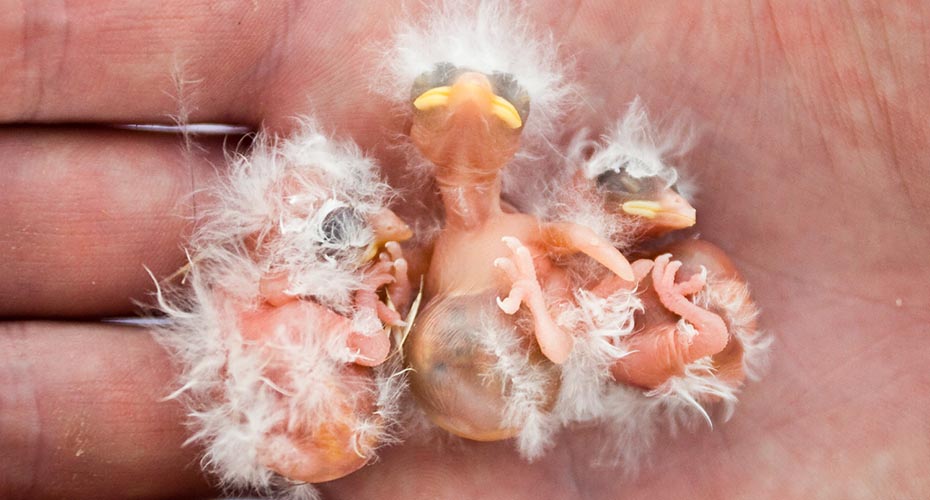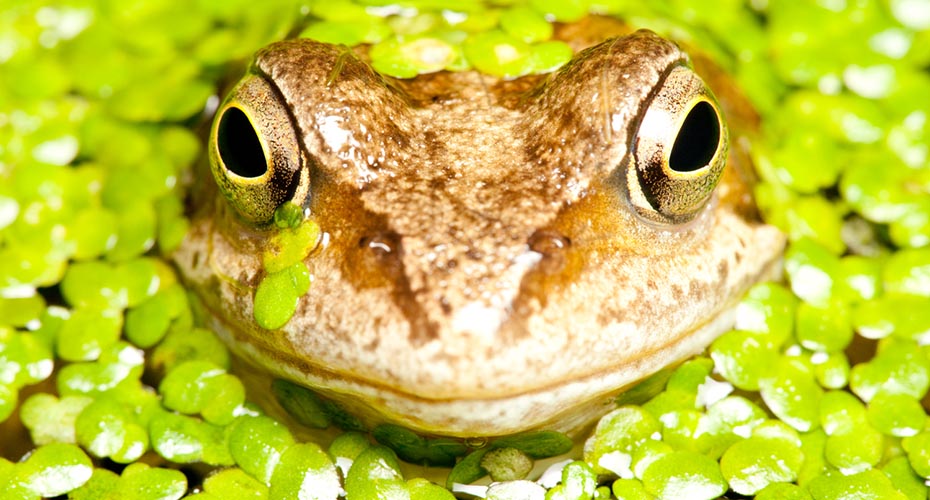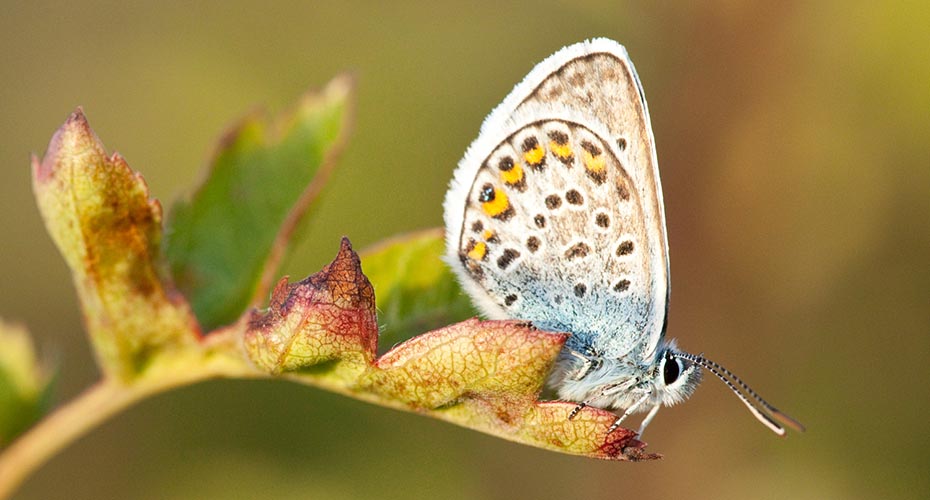Social evolution is one key focus of our teaching, and our active research on cooperation and conflict in insect, bird and mammal societies provides great opportunities for research projects in this area.
| UCAS code | 1234 |
|---|---|
| Duration | 1 year full time 2 years part time |
| Entry year | 2024 |
| Campus | Penryn Campus |
| Discipline | Ecology and Conservation |
| Contact |
| Typical offer | Normally at least a 2:1 Honours degree or equivalent in a relevant subject |
|---|---|
Overview
- Cutting-edge training in Evolution and Animal Behaviour and their application to tackling the global challenges of our time.
- Delivered by the Centre for Ecology & Conservation; a globally recognised centre of excellence in research and teaching in evolutionary biology, animal behaviour and conservation biology, based on our Penryn campus in stunning Cornwall.
- Two-week field course studying animal behaviour in the wild in Africa. Or focus on the challenges of rewilding in a two-week UK-based field course; a low-carbon alternative.
- Extensive skills training, designed to fast-track research and ecology careers.
- Gain first-hand experience conducting a major research project in your chosen area.
- Outstanding research facilities & opportunities to study the wild biodiversity on our spectacular Cornish coastline.
- Tailor your study to your needs with one-year full-time and two-year part-time options.
![]()
Top 20 in the UK for world-leading research in Biological Sciences
REF 2021, based on 4-star research
![]()
9th in the world for Ecology
ShanghaiRankings Global Ranking of Academic Subjects 2022
![]()
90% of our Biological Sciences research is internationally excellent
Based on research rated 4* and 3* in the Research Excellence Framework 2021
![]()
High-quality research supervision, with access to excellent facilities
Course content
This programme provides cutting-edge training in Evolution and Animal Behaviour and their application to global challenges, through inspirational teaching and practical, first-hand research experience. By building transferable knowledge, skills and experience, the course acts as a stepping stone into research, ecology and conservation-facing careers.
The course is delivered by leading academics with global reputations in evolutionary biology, animal behaviour and conservation, and is based at the University’s internationally-renowned Centre for Ecology and Conservation on our Penryn campus in spectacular Cornwall.
The modules we outline here provide examples of what you can expect to learn on this degree course based on recent academic teaching. The precise modules available to you in future years may vary depending on staff availability and research interests, new topics of study, timetabling and student demand.
Through interactive seminars, discussions and practical activities led by experts in each area, you will build an advanced understanding of frontier topics in evolutionary biology and animal behaviour, and gain practical experience in the diverse modern research methods used in these fields. You will also receive high-level training in the analytical and transferable skills needed for a career in research and the wider ecology sector.
On our field course in Kenya you will gain first-hand experience studying animal behaviour in the wild, in the spectacular settings that have yielded many iconic advances in behavioural ecology.
180 credits of compulsory modules
a If you have mobility or health disabilities and want to undertake fieldwork, then reasonable adjustments and/or alternative assessment can be considered.
Compulsory modules
| Code | Module | Credits |
|---|---|---|
| BIOM4009 | Research Project | 90 |
| BIOM4046 | Evolutionary and Behavioural Ecology: Frontiers and Approaches | 30 |
| BIOM4025 | Statistical Modelling | 15 |
| LESM006 | The Art of Science | 15 |
| BIOM4019 | African Behavioural Ecology Field Course [See note a above] | 30 |
Through interactive seminars, discussions and practical activities led by experts in each area, you will build an advanced understanding of frontier topics in evolutionary biology and animal behaviour, and gain practical experience in the diverse modern research methods used in these fields. You will also receive high-level training in the analytical and transferable skills needed for a career in research and the wider ecology sector.
On our Rewilding the UK field course, you will move among iconic wildlife sites in the UK, you will learn from conservation practitioners and stakeholders engaged in the challenges of rewilding developed landscapes.
a You may select only one of the field course modules. If you have mobility or health disabilities and want to undertake fieldwork, then reasonable adjustments and/or alternative assessment can be considered.
Compulsory modules
| Code | Module | Credits |
|---|---|---|
| BIOM4009 | Research Project | 90 |
| BIOM4046 | Evolutionary and Behavioural Ecology: Frontiers and Approaches | 30 |
| BIOM4025 | Statistical Modelling | 15 |
| LESM006 | The Art of Science | 15 |
| BIOM4043 | Rewilding the United Kingdom | 30 |
Research project
A key strength of the programme is the opportunity to the conduct a major independent research project embedded within one of our world-class research groups here at Exeter’s Centre for Ecology & Conservation. This allows students to deepen their technical knowledge, career-facing skills and research experience in the area that excites them most.
Assessments
Taught modules will be assessed through a variety of methods including oral and poster presentations, written research reports and literature reviews, during or upon completion of the modules. A significant proportion of the overall assessment is based on the research project, which is to be written up in the form of a research paper.
Full-time and part-time options
Our programme is designed to be taken full time in one year or part time over two years. We can customize the part-time experience, so do get in touch with the Programme Director if you’d like to discuss the options.
Support and community
All students are allocated two tutors who are available for advice and pastoral support throughout your time with us. We also foster a thriving and innovative postgraduate community within the Centre for Ecology and Conservation and the wider Graduate School of Environment and Sustainability on our Cornwall campus, of which you will become a member.
Field courses: Africa and UK
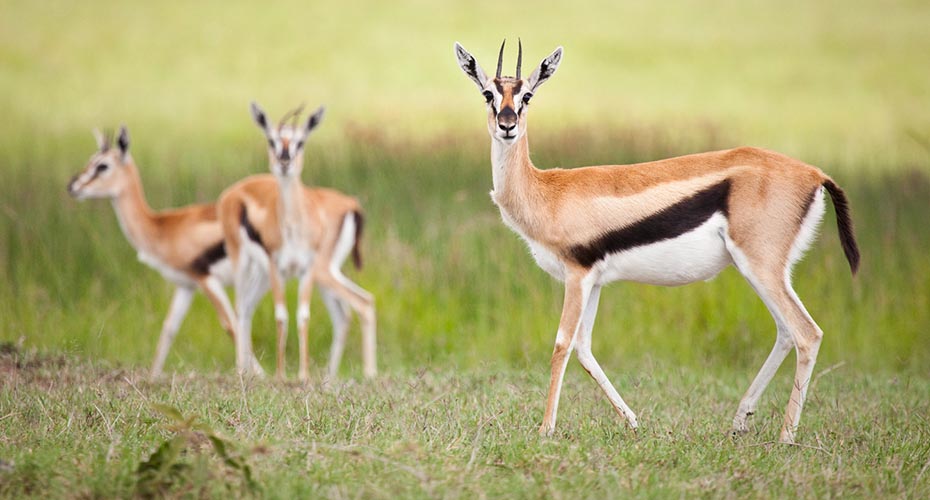
The programme includes a two week taught field course to either Africa or the UK, depending upon the programme variant that you choose when you apply. Travel and subsistence costs for the field course are included within the programme fee, which differs slightly for the two programme variants. There may be additional costs entailed in the purchase of personal equipment (e.g. walking boots and rucksack), visas or vaccinations.
African Behavioural Ecology field course
On this course you will travel to Kenya to spend two weeks gaining first-hand experience studying animal behaviour in the wild, in the spectacular settings that have yielded many iconic advances in behavioural ecology. You will go on safari in areas of incredible biodiversity, to observe a wide variety of behaviour in action - from cooperation to conflict, communication to mate choice - and discuss how selection has favoured these fascinating adaptations. You will develop your own behavioural research questions and conduct a short project to address them in the field.
Rewilding the UK field course
On this course you will move among iconic wildlife sites in the UK, learning from a diverse range of practitioners and stakeholders engaged in the modern conservation practice of rewilding developed landscapes. You will consider the meaning of the word “wild” in the UK, and learn the political, regulatory, economic, scientific, ecological and social opportunities and constraints that affect biodiversity conservation in our changing world. This option provides a low-carbon field course destination, in line with our commitment to tackling the global climate emergency.
More about our field courses:
Studying animal behaviour in the wild is essential if we are to understand how natural selection has yielded the stunning diversity of behaviour that we see in nature. On this field course you will have an opportunity to follow in the footsteps of pioneering evolutionary biologists, visit their field sites, observe their study species, and discuss their ground-breaking research. At beautiful locations in Kenya’s network of National Parks and Reserves we observe fascinating animal behaviours and consider the evolutionary processes that have shaped traits such as communication systems, mate choice, and cooperation.
Whilst exploring Kenya’s biodiverse Afro-tropical habitats, we encounter an array of species ranging from widowbirds and sparrow-weavers to hyaenas and lions. Guided and tutored by our experienced academic staff, you will design a research project to investigate the evolution of behavioural strategies in the wild. You will learn how to develop hypotheses, make predictions, collect and analyse data, and interpret their findings in order to explain behavioural strategies. By conceiving, designing, and executing a research project, you'll gain a better understanding of the scientific process, a firmer knowledge of field techniques, and a greater sense of independence. You'll also hone your skills in describing and effectively communicating the practical and theoretical issues surrounding animal behaviour and ecology, and in applying theory to practical problems in the field.
These skills will be further strengthened by discussions with staff, student-led seminars and presentations. After returning to the UK, you will perform a statistical analysis of data collected during the trip, create a poster presentation sharing the results and conclusions of this work, and write a short review of a topic related to your field project.
The United Kingdom is economically highly developed, densely populated and intensively farmed and industrialised. This human-dominated system makes life very challenging for the wildlife that shares our country with us, and for the biota that provides us with ecosystem services like pollination, clean air, freshwater and recreation. Some of our precious biodiversity is considered “pest” or “weed” by people. Many of our natural systems suffer invasion by non-native species. Many of our natural habitats are degraded, fragmented, and very fragile in the face of anthropogenic climatic and environmental change. Yet, the UK is at the forefront of global efforts to conserve, rescue, replenish or replace native biodiversity.
This residential field-course will perform a transect through the United Kingdom’s hotspots of terrestrial and marine biodiversity, human-wildlife conflict and ecological restoration. You will see the endangered wildlife of the UK, and meet the people who are stakeholders in their management or their conservation: National Park authorities; farmers; government employees; conservation charity managers; people delivering species translocations; researchers; ecological consultants; tourism operators and the general public. You will consider the meaning of the word “wild” in the UK, and you will learn the political, regulatory, economic, scientific, ecological and social opportunities and constraints that affect all attempts to conserve biodiversity in our changing world.
This course will help you develop subject-specific and transferable skills relevant to your future employment. You will gain practical experience in wildlife identification; abundance and behavioural measurements; habitat monitoring; environmental stakeholder debates and focus groups; species translocations techniques, technologies and policies; critical appraisal of conservation evidence; presentation of rewilding information to broad audiences using a variety of formats including factsheets and posters.
Travel and subsistence costs for this part of the programme are included in the programme fee. However, you may be required to provide your own specialist personal equipment appropriate to the field course destination, e.g. walking boots, rucksack, binoculars.
This module has been designed specifically in response to the global Climate and Environment Emergency. Wherever possible we will use non-airborne public transport and low-impact accommodation, and work, eat and play in ways that tread as lightly as possible on our environment.
The field trip was a fantastic experience. Kenya is bursting with wildlife and was the perfect setting to learn and discuss how this fascinating diversity evolved. The highlight of the trip was the research project: I spent four days studying zebra social behaviour in a National Park – amazing! It really sparked my enthusiasm to pursue life as a scientist.
Madi
MSc Evolutionary and Behavioural Ecology
Entry requirements
Normally a 2:1 degree or above in a relevant science subject* is required, although applicants with a 2:1 degree in another subject will be considered if their CV and personal statement evidence significant relevant research experience.
*Relevant subjects include: Biology, Biosciences, Ecology, Evolutionary Biology, Geography, Marine Biology, Natural Sciences, Zoology.
Entry requirements for international students
English language requirements
International students need to show they have the required level of English language to study this course. The required test scores for this course fall under Profile B2. Please visit our English language requirements page to view the required test scores and equivalencies from your country.
Fees
2024/25 entry (with Africa Behavioural Ecology field course)
UK fees per year:
£15,700 full-time; £7,850 part-time
International fees per year:
£29,500 full-time; £14,750 part-time
2024/25 entry (with UK Rewilding field course)
UK fees per year:
£14,500 full-time; £7,250 part-time
International fees per year:
£28,300 full-time; £14,150 part-time
Scholarships
We invest heavily in scholarships for talented prospective Masters students. This includes over £5 million in scholarships for international students, such as our Global Excellence Scholarships*.
For more information on scholarships, please visit our scholarships and bursaries page.
*Selected programmes only. Please see the Terms and Conditions for each scheme for further details.
Field course
The programme includes a two week taught field course to either Africa or the UK, depending upon the programme variant that you choose when you apply.
Travel and subsistence costs for the field course are included within the programme fee, which differs slightly for the two programme variants.
There may be additional costs entailed in the purchase of personal equipment (e.g. walking boots and rucksack), visas or vaccinations.
Research experience

During your MSc you will join and train with a world-class community of researchers in organismal biology at our Centre for Ecology and Conservation in Cornwall. It is the largest and fastest-growing institute of its kind in the UK, and hosts globally significant expertise in Evolutionary biology, Animal Behaviour, Ecology and Conservation Biology across an array of leading international research groups. Our groups study a diverse range of organisms, from social mammals and birds to reptiles, fish, insects and microbes, and use a wide array of modern research methods.
Our research spans all of the key fields in Evolutionary and Behavioural Ecology, with particular strengths in Social Behaviour, Social Evolution, Cognition, Culture, Personality, Life-Histories and Ageing, Sexual Selection, Sensory Ecology, Migration, Microbial Evolution, Disease Ecology, Evolutionary Theory, and Quantitative Genetics. With major research groups in Ecology and Conservation as well, we also excel in the application of Animal Behaviour expertise to conservation-facing challenges.
Your Research Project
A key strength of the programme is the opportunity to the conduct an independent research project embedded within one of our 60+ world-class research groups at the Centre for Ecology and Conservation. Our academics offer a wide variety of research projects both in the UK and abroad, spanning the full range of the evolutionary and animal behaviour expertise at the Centre and using a wide range of systems from the field to the lab. This allows students to deepen their technical knowledge, career-facing skills and research experience in the area that excites them most.
After the first five months of taught modules, your primary focus will switch to your research project. This approach allows you to build your core research skills before embarking on your project, and to use knowledge gained during the taught modules to inform your project choice. It also allows you to focus exclusively on your research project without distraction, and offers geographical flexibility during the research project phase (e.g. allowing you to pursue a project involving international fieldwork).
Research Funding
All of our MSc research projects are supported by a research budget of up to £1000 towards research costs entailed in the work. This can be used to support research costs ranging from laboratory consumables to fieldwork travel and accommodation costs, depending on the nature of the project undertaken.
Graduate School of Environment and Sustainability
You will become part of Exeter's Graduate School of Environment & Sustainability - a vibrant and supportive postgraduate community based here on our Penryn campus in Cornwall. The Graduate School brings together experts from across the spectrum of earth and life sciences, engineering, humanities, social sciences and business. You will interact with students from other MScs and have the opportunity to explore issues from a range of perspectives, benefiting from a truly interdisciplinary experience. All our programmes are designed with a focus on developing solutions to global challenges and creating a better future for our planet and its people.
Over 150 MSc research project publications
MSc research projects at the Centre for Ecology and Conservation have now led to student authorship on a staggering 150 publications and counting in peer-reviewed journals. Nothing fast-tracks a research career better than a publication from your MSc.
10 of our most recent published research projects with the MSc student as first author
- Bullough et al. 2023. Artificial light at night causes conflicting behavioural and morphological defence responses in a marine isopod. Proceedings of the Royal Society B.
- Satsias et al. 2022. Sex-specific responses to anthropogenic risk shape wild chimpanzee social networks in a human-impacted landscape. Animal Behaviour.
- Allison et al. 2020. The drivers and functions of rock juggling in otters. Royal Society Open Science.
- Castledine et al. 2020. Experimental coevolution in a multi‐species microbial community results in local maladaptation. Ecology Letters.
- Knox et al. 2019. Gesture use in communication between mothers and offspring in wild orang-utans (Pongo pygmaeus wurmbii) from the Sabangau peat-swamp forest, Borneo. International Journal of Primatology.
- Evans et al. 2018. Effects of ambient noise on zebra finch vigilance and foraging efficiency. Plos One.
- Walton & Stevens 2018. Avian vision models and field experiments determine the survival value of peppered moth camouflage. Communications Biology.
- Cabrera et al. 2017. Island tameness and the repeatability of flight initiation distance in a large herbivore. Canadian Journal of Zoology.
- Hawkes et al. 2016. Intralocus sexual conflict and insecticide resistance. Proceedings of the Royal Society B.
- Zwirner E, Thornton A (2015) Cognitive requirements of cumulative culture: teaching is useful but not essential. Scientific Reports.
Careers
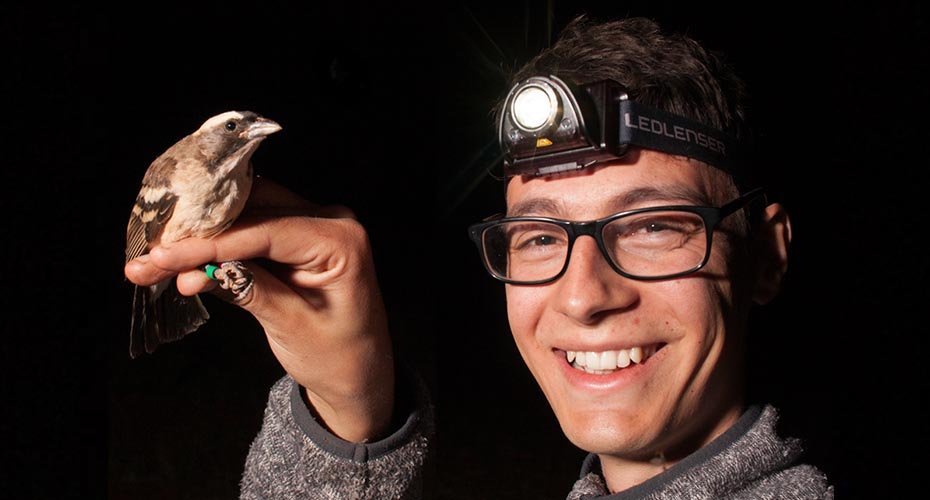
Our programme is designed to prepare candidates for research and ecology-facing careers, whether within academia or the wider ecology and conservation sectors.
While many of our graduates go on to study for PhDs, the programme provides an excellent grounding for a wide range of post-graduate destinations linked to front-line research. For examples of the diverse career destinations of our past graduates, check out interviews with our MSc alumni on the Graduate School of Environment and Sustainability blog.
Employer-valued skills this course develops
During the course you will gain first-hand practical experience with a diverse range of modern methods in evolutionary and behavioural research, ranging from quantifying behaviour in the field to genetic sequencing and microbial research in the lab. Your chosen research project provides an excellent opportunity to then deepen your practical skills and experience within the area that interests you most.
You will also develop the strong transferable skills needed to advance your career, including quantitative skills, scientific writing, public speaking, grant writing, CV writing, and the professional use of social media.
Networking opportunities
By joining a globally recognised centre of excellence in evolutionary, behavioural and conservation-facing research, you will have outstanding opportunities to build a network of contacts in your area of interest, drawing on the academic community here as well as the wide array of external stakeholders and researchers who join us in our regular research and employability seminar series.
Careers support
Our careers teams at the Career Zone can help guide you through a wealth of information to match your skills and interests to a career that will suit you. Our staff work with regional, national and international employers to develop new work placement, project and graduate opportunities.
Graduate destinations
Below are a few examples of the career destinations of graduates from the MSc Programmes here at the Centre for Ecology & Conservation. You will also find examples of the career paths of our past graduates on the Graduate School of Environment and Sustainability blog.
- PhD Researcher
- Ecologist
- Conservation Scientist
- Field Researcher
- Data Analyst
- Environmental Consultant
- Research Technician
- Research Assistant
- Science Media Officer
- Natural History Film Maker
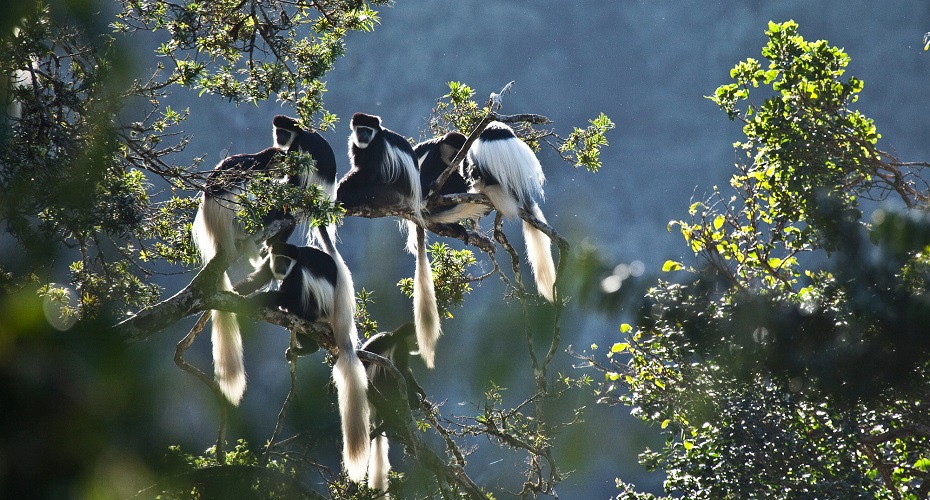
.jpg)
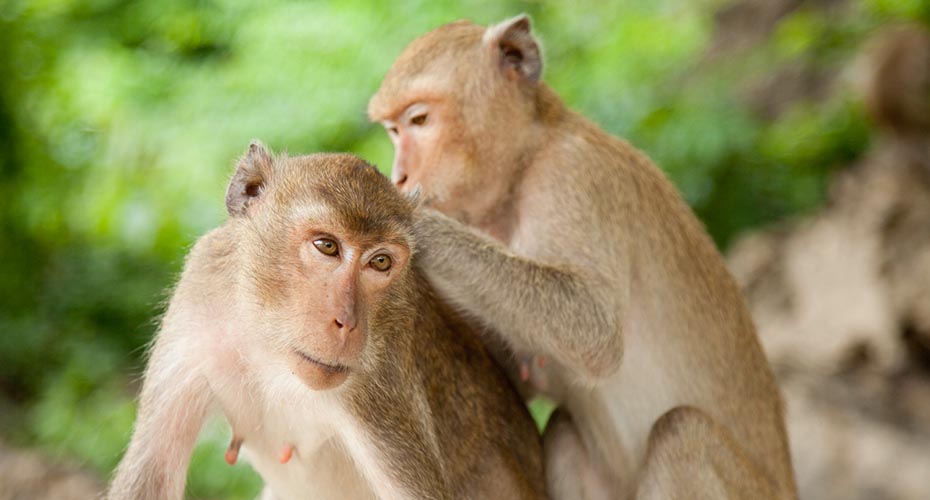
.jpg)
